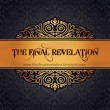Refuting the claim that Aisha r.a did matam at the death of Prophet saw and Abu Bakr r.a
NARRATION # 1 :
حدثنا عبد الله حدثني أبى ثنا يعقوب قال ثنا أبى عن بن إسحاق قال حدثني يحيى بن عباد بن عبد الله بن الزبير عن أبيه عباد قال سمعت عائشة تقول : مات رسول الله صلى الله عليه وسلم بين سحري ونحرى وفي دولتي لم أظلم فيه أحدا فمن سفهي وحداثة سني ان رسول الله صلى الله عليه وسلم قبض وهو في حجري ثم وضعت رأسه على وسادة وقمت ألتدم مع النساء واضرب وجهي
Narrated Abdullah narrated my father narrated Yaqoob narrated my father from Ibn Ishaq he said narrated to me Yahya ibn Abbad ibn Abdilleh ibn Al-Aubair from his father Abbad he said I heard A’isha saying: The Messenger of Allah (s.a.w) died between my lap and my neck and in my area (home). I did not oppress anyone in it. It was due to my insolence and my young age that the Messenger of Allah (saw) died while he was in my house. Then I put his head on a pillow and I grieved with the women and hit my own face.
[Ref: Musnad Abu Ya’la. Vol. 8, Pg. # 63, H # 230 – Shaykh Sulaym Asad said the chain is hasan in his comments on “Musnad” Abu Yala #4586, ; Seerah Ibn Hisham. Pg. # 482.; Musnad Ahmed ibn Hanbal. Vol. 43, Pg. # 368. H # 26348; Hassan by Shu`ayb al-Arnout and Albaanee in Irwa . Vol. 7, Pg. # 86. ]
Yes, the narration is Hassan. It has Ibn Ishaaq in the above chain who is a Thiqah Muddalis but here he is reporting from ‘Haddthani’ i.e affirming his sam`aa so there is no weakness here via him .
The word ” ألتدم ” is an expression that is used to describe the action of Maatam or beating and hitting .
al-tadam (التدام), is has the root in al-ladam ( اللدم). and ladam means slapping. or emphasizes hitting such that produces a voice
but if al-ladam is taken from the baab ifi’aal (” باب افتعال “), that is al-tadam (” التدام “); then it indicates the action of women hitting their chest and is used in the context of mourning over the dead
Ibn al-Manzoor writes (explaining this definition) :
اللدم : اللطم و الضرب بشئ ثقیل یسمع وقعه و التدم النساء اذا ضربن وجوههن في المآتم ……… و التدام النساء : ضربھن صدورھن و وجوھھن فی النیاحة
[لسان العرب ; جلد12 ; صفحہ 265; طبعہ داراحیاء التراث العربی]
[Rough Translation] when women hit their chest while doing noha (reciting sad poetry for dead one, See Irwaa ul-Ghaleel 7/86 wherein Shaykh Albaanee explains this word under the tashreeh of the above narration), that is called “al tadam”
Muhammad ibn Ya`qoob Firozabaadi (Grammarian) says the same thing :
اللدم : اللطم و الضرب بشئ ثقیل یسمع وقعه ………… والتدم : اضطرب، والمرأة ضربت صدرھا فی النیاحة
[ القاموس المحیط; صفحہ1168; طبعہ دارالکتب العلمیہ بیروت ]
Ibn al-Jawzi (r.h) says the same thing quoting Abu Ubayd that this word is attributed to women to depict them hitting their chest and face at instances of death or funeral
و قال أبو عبيد : اللدم جمع لادم، و النساء یلتدمن علی الانسان اذا مات، فی حدیث عائشة : فقمت ألتدم ، قال اللیث : اللدم : ضرب المرأة صدرھا و وجھھا
[ لغات الحدیث; جلد2; صفحہ321 ]
Ibn Atheer also quoted the narration of ayesha under al-ladam, and extracted a similar definition of what we have seen above
اللدم بالتحریک : الحرم، جمع لادم، لأنهن يلتدمن عليه اذا مات، و الالتدام : ضرب النساء وجوھھن فی النیاحة ………… ومنه حديث عائشة : قبض رسول اللہ و ھو فی حجری ثم وضعت رأسه علی وسادة و قمت ألتدم مع النساء و أضرب وجهي
[النهاية فی غریب الحدیث و الأثر; جلد4; صفحہ212; طبعہ دارالکتب العلمیہ]
Our Reply :
There are various angles from which this could be answered. I shall enlist all of those reasons which in my understanding, befits as a reply
1) Since when did Muslims become obliged to follow the Sahaaba in everything they do even if it contradicted the Messenger of Allah (s.a.w) ? We the Ahlus Sunnah wal-Jama`ah don’t follow anyone blindly except the authentic sources. As Imaam Maalik said : ” Everyone’s statement can be accepted or rejected except the occupant of this grave (i.e the Prophet s.a.w) . Unlike you (Shi`as) , we do not have a list of power-rangers (infallible Imaams) who can never err . We believe that the infallibility is with the prophets only with regards to preaching , practicing the deen and conveying about it truthfully. So even if you bring us one-hundred Imaams of our Ummah who have opposed the prophet (s.a.w), we will leave their actions for (merely) one statement of the prophet (s.a.w) and in this case , it is well known regarding the stern warning prophet (s.a.w) gave in regards to wailing and indulging in Maatam like activities. So no matter who does it , it is rejected and not a hujjah upon us.
An e.g of this comes from Ameer ul-Mumineen – the one whom you envy for kneeling your forefathers – `Umar ibn al-Khattab (r.a) said ……..that we should not leave the Book of Allaah and the Sunnah of our Prophet (peace and blessings of Allaah be upon him) for the words of a woman who we cannot be sure has remembered things properly or not… [Saheeh Muslim, no. 1480]
2) We all believe in the completeness and purity of the Qur`an (unlike you whose forefathers propagated and advocated the tahreef of Qur`an [See a short trailer here : http://the-finalrevelation.blogspot.com/2013/09/shias-believe-in-corruption-of-quran.html ] so the Qur`an which honored our mother `Aisha (r.a) in various ways and instances both directly as well as indirectly informs us about the high prestige of our mother which you filthy self flagmenting – lizard-like crawling cockroaches will never respect or understand. Not your fault though, Mut`ah does have it’s side effects !
Thus It does not befit for us to mock or insult any of the companions of Muhammad (s.a.w) let alone the wife – the honor – the love – the jealousy of our prophet (s.a.w) . Just like how `Ali (r.a) said openly in Kufa on the minbar and it is a mutawaatir report which states :
ولا يبلغني عن أحد يفضلني عليهما إلا جلدته حد المفتري
“I will lash anyone who prefers me over Abu Bakr and Omar, the lashing of a slanderer.”
[Lisan al-Mizan, Vol. III P. 290]
Hafidh ibn Katheer in “Bidaya wal Nihaya” vol 7, chapter “شيء من فضائل أمير المؤمنين علي بن أبي طالب” wrote:
وقد ثبت عنه بالتواتر أنه قال على منبر الكوفة: أيها الناس! إن خير هذه الأمة بعد نبيها أبو بكر ثم عمر، ولو شئت أن أسمي الثالث لسميت
“And it’s proven from him [Ali] in “tawaatur” form, that He said on the pulpit in Kufa: “O people! The best one in this Ummah after her Prophet is Abu Bakr , then Omar , and if I wanted to say you the third name, I would do that.”
similarly the Muslims have openly testified since 1435 years to the wisdom, knowledge and purity of our mother `Aisha (a.s). So ponder and learn something. If merely preferring `Ali (r.a) over Abu Bakr and `Umar would be punishable then how about abusing and dishonoring the mother of believers?
3) Let’s agree for the sake of argument that she did indulge in a full fledged maatam and even after this we say that in the above narration `Aisha (r.a) herself testifies that it was due to her insolence and immaturity ( فمن سفهي وحداثة سني ) she did what she did . So this is not going against her at all . And Allah does not punish a person for a mistake which they did either unknowingly or due to coercion or in circumstances when they were absolutely grieve striken or not in control. Even the strongest of Sahaabi `Umar (r.a) himself shrank back in astonishment upon hearing the news of the death of Prophet (s.a.w) so much so that he threatened to chop off the head of anyone who utterd such a “blasphemy” , then what about the grief and shock of the gentle and loving `Aisha (r.a)?
The prophet (s.a.w) himself said that “If any one of you is touched by a calamity, let him remember the calamity that befell him concerning me (death) because it is of the greatest calamities.”
[Ref: Tabraani Mu`jam al- Kabeer 6718 and Saheeh by Albaanee in Silsilah Saheeha 1106., may Allah reward brother Syed Asif for informing me of this narration]
So even if `Aisha (r.a) did what she did , it was something she did instantly and unlike you grave worshiping Rafidah, she didn’t repeat this process every year along with drinks and barbeque. So to take this one-time incident and justify your every year “Let’s hit ourselves” club membership is more ridiculous than your very own deen
4) Just because the chain of this narration is Hassan, it doesn’t mean the hadeeth becomes hassan as well
Ibn Kathir says:
” الحكم بالصحة أو الحسن على الإسناد لا يلزم منه الحكم بذلك على المتن ، إذ قد يكون شاذاً أو معللاً ”
The fact that the chain is deemed to be authentic or hasan does not necessarily mean that the same applies to the text,because it may be shaadh (odd) or mu’allal (faulty). [Ikhtisaar ‘Uloom al-Hadeeth (p. 43).]
This Usool is also accepted by your own muhadditheen as well, when defending your Imaams
(4.1) This narration containing the last statement of `Aisha (r.a) hitting herself is in contradiction to other narrations wherein she has conveyed the prohibition of wailing , such as the one reported in an-Nasa`ee (1858) and various other ahadeeth prohibiting wailing during the lifetime of the prophet (s.a.w) which were not hidden from `Aisha (r.a).
(4.2) Secondly this action is against the noble prestige and behavior of our mother .
(4.3)Thirdly this is the only narration that has an acceptable sanad in this regard and it is odd because all the other narrations in the Books of Sunan [See for e.g : http://sunnah.com/search/between-my-chest ] that have the wordings ” died between my chest and neck” do not include this strange addition of hitting , so this is an Odd riwaayah .
As Allamah as-Sindhee said that such a statement is rejected : قلنا: وقولها: وقمت ألتدم مع النساء
وأضرب وجهي. فيه نكارة ولم نجده إلا في هذه السياقة، والسيدة عائشة زوجة النبي صَلَّى اللهُ عَلَيْهِ وَسَلَّمَ لا يخفى عليها حديث ابن مسعود مرفوعاً: ليس منا من ضرب الخدود، وشق الجيوب، ودعا بدعوى الجاهلية”
Ibn Jawzi (r.h) like implied that such a thing is inconceivable about our mother and thus to be rejected :
قال ابن الجوزي في كشف المشكل قلت: ابْنة أبي قُحَافَة هِيَ: أم فَرْوَة أُخْت أبي بكر، فَلَمَّا لم يُمكنهُ أَن يكلم عَائِشَة هَيْبَة لَهَا واحترامًا، أدّب هَذِه.
This was also said by Arnout and others.
Shaykh Shu`ayb al-Arnout said :
) إسناده حسن من أجل ابن إسحاق: وهو محمد، وقد صرح بالتحديث هنا، فانتفت شبهة تدليسه. وبقية رجاله ثقات رجال الشيخين غير يحيى بن عباد بن عبد الله بن الزبير أخرج له أصحاب السنن، وهو ثقة، يعقوب: هو ابن إبراهيم بن سعد بن إبراهيم بن عبد الرحمن بن عوف. وأخرجه أبو يعلى (4586) ، والبيهقي في “الدلائل” 7/213 من طريقين عن ابن إسحاق، بهذا الإسناد. وأخرجه مختصراً ابن سعد 2/261-262 و262 من طريق عيسى بن معمر، وأبي الأسود، كلاهما عن عباد بن عبد الله، عن عائشة، به. قلنا: لكن في طريقهما الواقدي، وهو متروك. وأخرجه ابن سعد 2/262 من طريق زيد بن أبي عتاب، عن عروهَ، عن عائشة، به. قلنا: وفي طريقه الواقدي كذلك، وهو متروك. وقد سلف نحوه برقم (24039) و (24216) . قلنا: وقولها: وقمت ألتدم مع النساء وأضرب وجهي. فيه نكارة ولم نجده إلا في هذه السياقة، والسيدة عائشة زوجة النبي صَلَّى اللهُ عَلَيْهِ وَسَلَّمَ لا يخفى عليها حديث ابن مسعود مرفوعاً: ليس منا من ضرب الخدود، وشق الجيوب، ودعا بدعوى الجاهلية” وهو حديث صحيح سلف في مسند ابن مسعود برقم (3658) ، وقال السندي في تفسيره هناك: ليس منا، أي: ليس من أهل طريقتنا وسنتنا.
[Rough Translation]
Isnaad is hassan because of Ibn Ishaaq: he is Muhammad, the hadith is stated by him and is suspected of tadlees, however rest of the men are trustworthy (men of the shaikhain) except Yahya bin ‘Ibaad bin Abdullah bin Zubair who is from ashaab as sunan, and he is trustworthy; Yaqoob: he is Ibn Ibrahim bin Sa’ad bin Ibrahim bin ‘Abd ar-Rahman bin ‘Awf.
and it is narrated by Ab Ya`la (4586), and Bayhiqi in “Ad-Dalail” 7/213 from two routes (one) from Ibn Ishaaq with this chain.
And it is also narrated in Mukhtasar Ibn Sa’ad 2/261-262 from ‘Essa bin Ma’amar, and Abi Aswad, and all of them from ‘Ibaad bin ‘Abdullah from ‘Aisha. we say: but in their route there is Waqdi , who is matrooq. And it is narrated in by Ibn Sa’ad 2/262 from Zaid bin Abi ‘Itaab, from ‘Arwa, from ‘Aisha. we say: It has in its chain Waqdi also , who is (again) matrooq.
We say and her saying:”stood up with women and started doing iltidam( an arabic word meaning hitting the face and chest ) and hitting my face” it is denied and it is not found except in this context, and Sayeeda ‘Aish is the wife of Rasool Allah (s.a.w)and the following marfoo’ narration of Ibn Masood is not hidden from her: ” He who slaps his cheeks, rips his pockets, or calls out the cries of the pre-Islamic period of ignorance is not of us.” and it s a sahih hadith quoted in musnad via Ibn Masood (3658), Al-Sindi said in its tafseer there: “not from us” means not from the our ways and sunan.
Note: I did not mention the narration that had al-Waaqdi that states :
فعجبت من حداثة سني أن رسول الله قبض في حجري فلم أتركه علی حاله حتی یغسل و لکن تناولت وسادة فوضعتها تحت رأسه ثم قمت مع النساء أصيح و ألتدم
because he is Matrook [ See : http://asmaur-rijaal.blogspot.com/2013/01/muhammad-bin-umar-al-waaqidi.html]
.
The above reasons are sufficient to reject this narration based on it’s matan
5) Another probable angle to look at it is that it is not neccessary that the word Al-tadam used in this riwaayah actually implies mataam in its completeness . Meaning : considering the status of `Aisha (r.a) , it is very odd for her to indulge in the pre-Islamic ritual of beating, shouting, tearing and it’s likes and thus the word al-tadam may not mean that she engaged in everything that the pre-islamic women used to do. Maybe she merely cried out due to the shock or hit her self in shock once or twice. This is further understood by the words wherein the prophet (s.a.w) is reported to have said that
” some speeches have magic ”
[Ref: Saheeh al Bukhaari, Vol: 7 Book:62 Hadith: 76]
Now the word magic used by the prophet (s.a.w) does not imply that those (eloquent) speeches have the completeness of magic or its complete trait in them, rather it is a word used to describe a feeble similitude. Similarly the expression reported in the above narration may not necessarily imply the complete traits of wailing which used to occur in the pre-islamic days (i.e tearing, hitting and harming, etc) .
Another e.g is tht the Prophet (peace and blessings of Allaah be upon him) said: “Travel is a kind of torment (‘adhaab); it keeps one of you from his food and drink.” So he called travel a torment (‘adhaab), but it is not a punishment for any sin. A man may be tormented by unpleasant things that he senses, such as alarming noises, bad smells and nasty images, so he is tormented by hearing them, smelling them or seeing them, but this does not mean that he is being punished for some deed. So this word Adhaab though it is used here but its meaning is different.Thus we could also use this analogy to say that `Aisha (r.a) – considering her knowledge and status – would not have indulged in the kind of pre-islamic wailing which the shi`as still do today.
6) As i clarified above, she did not repeat this again for her brother, or father, or nephews as the women were accustomed to doing so back in the pre-islamic days. So this was a one time event, which is rejected either due to the odd matan or refuted as she did it due to the sudden uncontrollable shock and immaturity to handle such a shock.
Either ways the above points are sufficient to refute the claim that validates Maatam. or the fact that `Aisha (r.a) did something of this sort.
NARRATION # 2 :
حدثني يونس، قال: أخبرنا ابن وهب، قال: أخبرنا يونس بن يزيد عن ابن شهاب ؛ قال: حدثني سعيد بن المسيب، قال: لما توفى أبو بكر رحمه الله أقامت عليه عائشة النوح، فأقبل عمر بن الخطاب حتى قام ببابها، فنهاهن عن البكاء على أبي بكر، فأبين أن ينتهين، فقال عمر لهشام بن الوليد: ادخل فأخرج إلى ابنة أبي قحافة ؛ أخت أبي بكر، فقالت عائشة لهشام حين سمعت ذلك من عمر: إني أحرج عليك بيتي. فقال عمر لهشام : ادخل فقد أذنت لك، فدخل هشام فأخرج أم فروة أخت أبي بكر إلى عمر، فعلاها بالدرة، فضربها ضربات، فتفرق النوح حين سمعوا ذلك.
[ تاريخ الطبري ج 2 ص 217]
Narrated Younus from Ibn Wahab from Younus Ibn Yazid from Al-Zuhri from Sa’eed Ibn Mosayyib who said: ‘When Aboo Bakr died, A’isha held a mourning gathering for him in which mataam had been read. Umar was informed of it, so he came to her door and forbade them of mourning on Aboo Bakr. They (women) refused, so he (Umar) said to Hisham Ibn Al-Walid: “Enter and bring out for me daughter of Abi Quhafa sister of Abi Bakr.” When A’isha heard this, she said to Hisham: “I forbid you from entering into my house!” Umar said to Hisham: “Enter, I allow you to do that!” So Hisham entered and brought out Umme Farwa sister of Abi Bakr to Umar, so Umar started beating her with his whip for a while. When the mourners heard this they escaped.
[Ref: Tarikh Al-Tabari. Vol. 3, Pg. # 423.; Al-Tabaqat of Ibn Sa’d. Vol. 3, Pg. # 191; Fath Al-Bari. Vol. 6, Pg. # 225 and Ibn Hajar declared it to be Saheeh]
OUR REPLY
1) The word used here is “Nouh النوح ” (a sad poetry) and not hitting or beating oneself up as described by many shi`as
[See Irwaa ul-Ghaleel 7/86 for more explanations on this word]
2) The chain is disconnected between Sa`eed ibn al-Mussayib and the incident he is reporting because Sa`eed (r.h) was born two years after the khilaafah of `Umar (r.a) i.e two years after this incident occured . And thus this is a weak narration i.e a Munqati one and this is what Ibn Mulqin and others have preferred in contrary to what Ibn Hajar said.
والمنقطع ضعيف بالاتفاق بين العلماء وذلك للجهل بحال الراوى المحذوف
[Rough translation] : A Munqati narration is undoubtedly or unanimously agreed upon to be weak among the scholars as the reporting source is unknown [Taiseer Mustalahal Hadeeth]
This is what Islamweb has to say on this narration :
http://fatwa.islamweb.net/fatwa/index.php?page=showfatwa&Option=FatwaId&Id=194691
IT IS HARAAM TO INDULGE IN MAATAM AND EVEN DRESS IN BLACK ACCORDING TO SHI`A BOOKS .
See: http://the-finalrevelation.blogspot.com/2013/02/proofs-against-matam-and-lamenting-from.html
The Origin of the Raafidah and their criticism for our righteous predecessors (salafus saaliheen) :
http://the-finalrevelation.blogspot.com/2013/05/the-origin-of-name-rafidah-shias-and.html
Claim : If the wailing woman does not repent before she dies, she will be made to stand on the Day of Resurrection wearing a garment of pitch and a chemise of mange.
Source: Saheeh Muslim. Book 10, H # 69, Pg. # 415.
So you see, `Aisha (r.a) didn’t repent and thus the above punishment is to be inflicted upon her
Our Reply : Produce your Proof (that `Aisha didn’t repent) but if you are truthful [Qur`aan 2:111] . the narration itself states ” IF the ….” so how do you know she didn’t?







